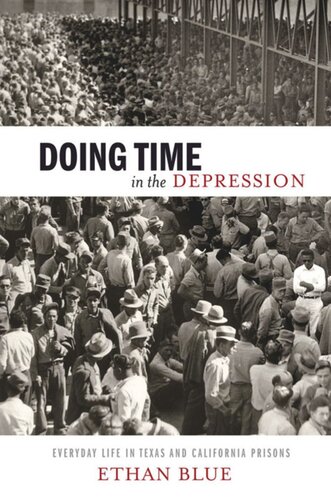

Most ebook files are in PDF format, so you can easily read them using various software such as Foxit Reader or directly on the Google Chrome browser.
Some ebook files are released by publishers in other formats such as .awz, .mobi, .epub, .fb2, etc. You may need to install specific software to read these formats on mobile/PC, such as Calibre.
Please read the tutorial at this link: https://ebookbell.com/faq
We offer FREE conversion to the popular formats you request; however, this may take some time. Therefore, right after payment, please email us, and we will try to provide the service as quickly as possible.
For some exceptional file formats or broken links (if any), please refrain from opening any disputes. Instead, email us first, and we will try to assist within a maximum of 6 hours.
EbookBell Team

4.1
10 reviewsAs banks crashed, belts tightened, and cupboards emptied across the country, American prisons grew fat. Doing Time in the Depression tells the story of the 1930s as seen from the cell blocks and cotton fields of Texas and California prisons, state institutions that held growing numbers of working people from around the country and the world—overwhelmingly poor, disproportionately non-white, and displaced by economic crisis.
Ethan Blue paints a vivid portrait of everyday life inside Texas and California’s penal systems. Each element of prison life—from numbing boredom to hard labor, from meager pleasure in popular culture to crushing pain from illness or violence—demonstrated a contest between keepers and the kept. From the moment they arrived to the day they would leave, inmates struggled over the meanings of race and manhood, power and poverty, and of the state itself. In this richly layered account, Blue compellingly argues that punishment in California and Texas played a critical role in producing a distinctive set of class, race, and gender identities in the 1930s, some of which reinforced the social hierarchies and ideologies of New Deal America, and others of which undercut and troubled the established social order. He reveals the underside of the modern state in two very different prison systems, and the making of grim institutions whose power would only grow across the century.